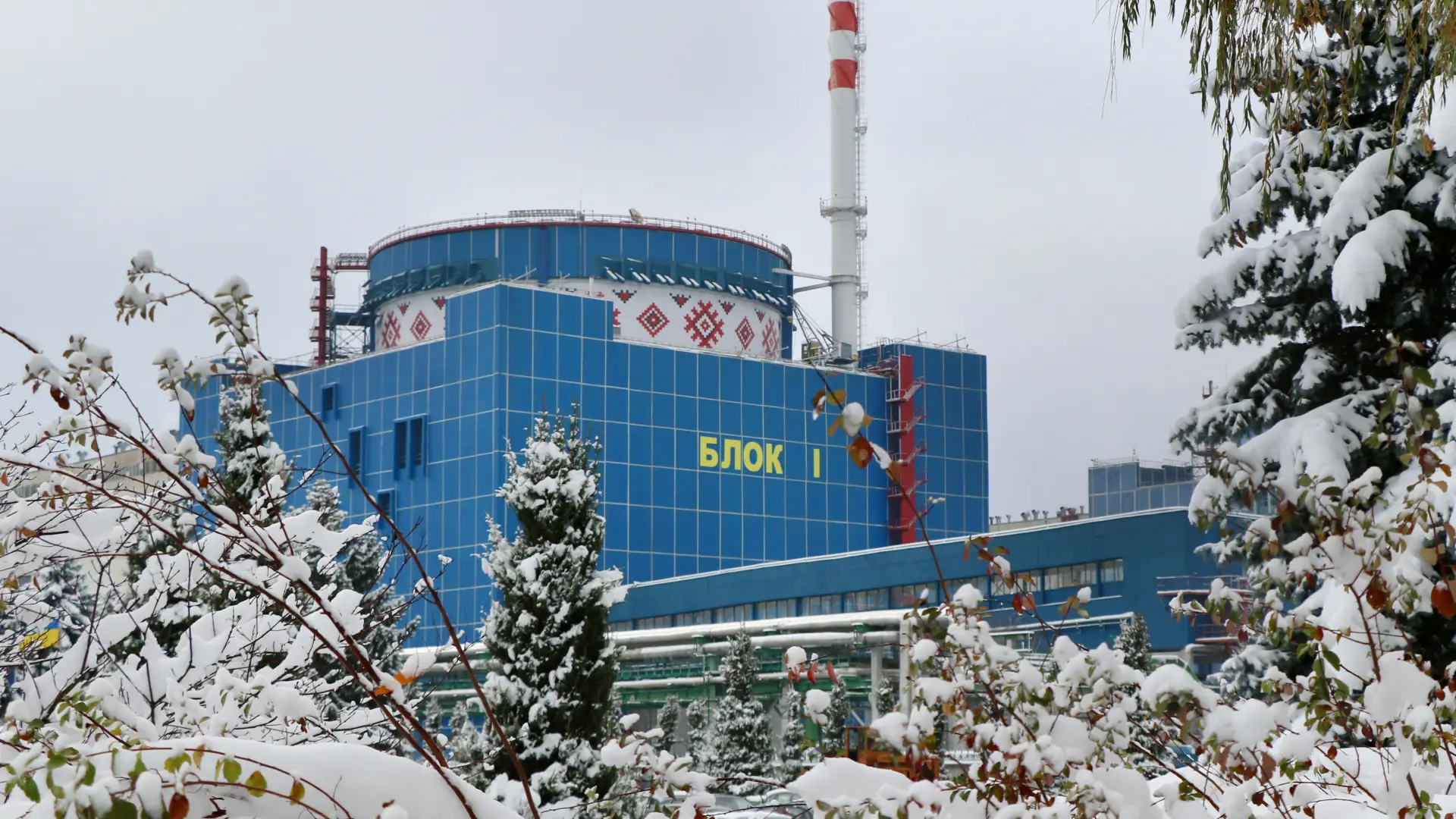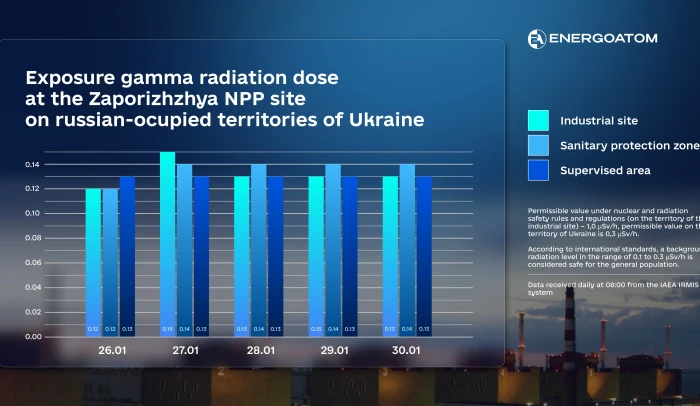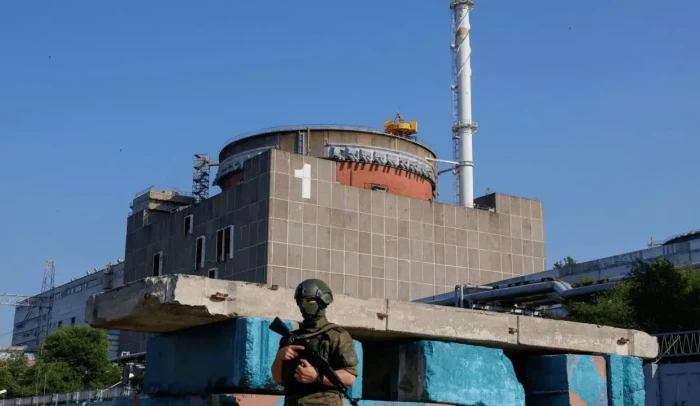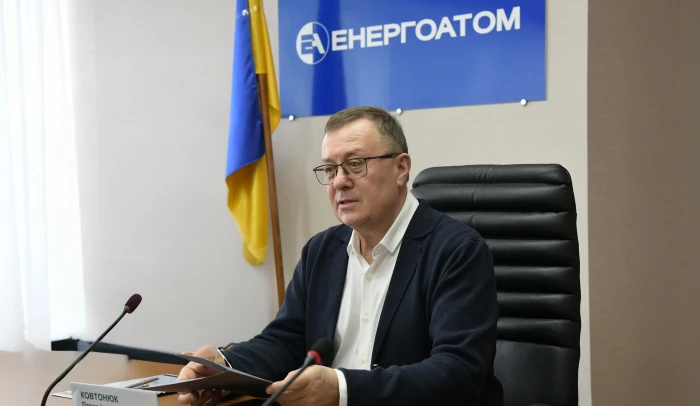The Ukrainian parliament is expected to vote soon on the possible completion of two nuclear reactors at its Khmelnytsky Nuclear Power Plant in the west of the country using Soviet-era equipment purchased from Bulgaria. The vote comes at a critical time for Ukraine’s energy sector following a prolonged Russian bombing campaign targeting civilian infrastructure that has decimated thermal and hydro power plants. As a result, Ukraine is now heavily reliant on the nuclear power industry, which is currently thought to be providing over seventy percent of the country’s electricity needs.
With other sources of power at far greater risk of Russian attack, expanding the country’s nuclear power generation capacity is seen by many in the Ukrainian energy sector as a priority. However, the only suitable components to complete reactors three and four at the Ukrainian nuclear power plant in Khmelnytsky are currently sitting in Bulgaria gathering dust and waiting for the green light from Kyiv.
Since Ukraine’s nuclear power plants date back to the USSR, the country finds itself forced rely on reactors built with Soviet technology. Bulgaria has offered to sell Ukraine reactor components originally intended for the country’s Belene Nuclear Power Plant project. This would make it possible to complete construction of two additional reactors at the Khmelnytsky plant, which would bring the total number of reactors in service to four. Two further reactors are also planned at the plant using Western technologies, but this is expected to be a longer process.
Backers of the potential agreement with Sofia note that it would strengthen bilateral ties between Ukraine and Bulgaria, which has long been a target of Russian subversion. With the Kremlin’s full-scale invasion of Ukraine set to enter a fourth year next month and with Moscow working hard to undermine support for Kyiv within the EU, this geopolitical context is an additional factor when assessing the suitability of the proposed reactor deal.
Ukraine’s potential nuclear reactor purchase from Bulgaria has received backing from within the US nuclear industry. “As the Ukrainian parliament considers legislation to authorize completion of the Khmelnytsky Nuclear Plant, NEI supports Ukraine’s efforts to complete the facility,” commented the Washington DC-based Nuclear Energy Institute. This makes sense. US nuclear energy company Westinghouse has already signed a memorandum of understanding with Ukraine’s Energoatom to install its AP1000 reactors in Ukraine, but these US reactors will take several years to build.
In light of the extended waiting period before new nuclear reactors can realistically be installed, Ukraine and its Western partners must find ways to keep infrastructure running and expand the country’s nuclear electricity generation as quickly as possible. Under the circumstances, supporters of the Bulgarian deal argue that it would be a wasted opportunity to leave units three and four at the Khmelnytsky plant partially completed when the parts needed to finish the job and provide electricity are available.
As Ukraine debates the potential delivery of Bulgarian reactors to expand one of the country’s Soviet-era nuclear plants, EU officials have reportedly ruled out contributing to the purchase. Opposition has also come from some segments of civil society and within parliament, with critics questioning the transparency of the proposed reactor deal and claiming Ukraine’s energy priority should be decentralization.
In a step toward greater transparency within the country’s nuclear energy industry, Energoatom agreed in January to bring its supervisory board into compliance with OECD guidelines. The process will take place under new supervisory board chairman Jarek Niewierowicz, Lithuania’s former energy minister and chief adviser to the Lithuanian president on environmental and infrastructure issues.
Helping Ukraine to rebuild and recover is recognized as a strategic priority by both the European Union and the United States, but supporting the resilience of the Ukrainian energy sector is not just a matter of standing in solidarity with Ukraine against Russia’s ongoing invasion. Given Ukraine’s considerable economic potential, it could serve as an attractive investment opportunity for the United States and EU nuclear power industries. Once the shooting stops and with better integration, Ukraine could even become a net exporter of electricity to the European Union. In the present wartime conditions, Ukraine already exports electricity when circumstances allow to neighboring countries including Moldova.
As Ukrainian MPs prepare to vote on the proposed Bulgarian purchase, longstanding efforts continue elsewhere in the energy sector to increase security, improve connectivity, and enhance integration between the Ukrainian and EU networks. While Soviet technology is certainly not a long-term solution to achieve the right energy balance in Ukraine, supporters of the Bulgarian reactor deal remain convinced that there are currently no practical alternatives until Western technologies can fully power the country’s strategically crucial nuclear plants.





